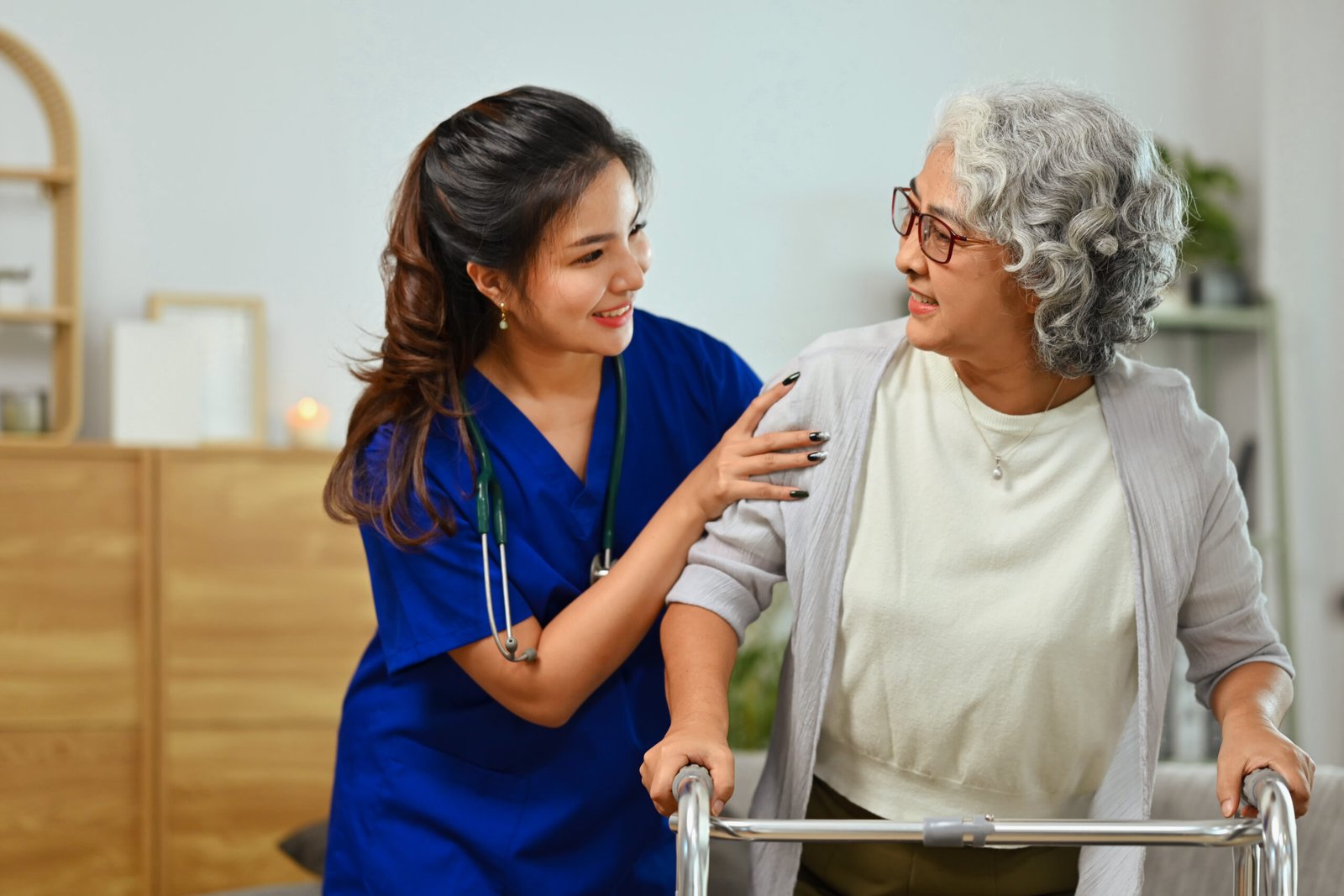Providing in-home care solutions for health plans.
Enhance health results and reduce healthcare expenses through in-home care solutions.
Member needs while prioritizing health plan objectives.
Enhance health outcomes, lower total cost of care, and boost member satisfaction through in-home care. Eve Care by Sharecare assists plans in supporting members who:

High need
Members with multiple chronic conditions, and typically accompanied by functional limitations, behavioral health conditions, and social risk factors

High cost
Medicare spending is ~2x higher among those who receive inadequate in-home support for basic activities of daily living (ADLs).

High risk
Members who are at increased risk of chronic diseases, and medical unnecessary hospital utilization
In-home services facilitating the entire care continuum.
Professional caregivers offer companionship, home helper, and personal care services in-home, contributing to programs focused on enhancing member experience and engagement, thereby bridging care gaps.
Support services for clinical care.
Licensed healthcare professionals and non-medical caregivers collaborate to provide non-medical clinical care assessments within a comprehensive outcome-based clinical encounter framework. Clinical support programs primarily target high-risk, high-utilization, and high-cost members, aiming to enhance the overall cost of care.
Tailored in-home care initiatives.
Our in-home care programs can be customized to serve various needs, such as:

Certified by Sharecare

Ensuring safety, security, and peace of mind.

Honoring our veterans.

Tailoring Services for Older Adults
Disabled Care Hub
Resources
Provide valuable information and tools that can help individuals with disabilities and their caregivers. This might include
Educational Materials:
- Guides on managing specific disabilities.
- Information on rights and accommodations.
- Accessible resources for education and employment.
Assistive Technologies:
- Information on various assistive devices (wheelchairs, hearing aids, communication tools).
- Guides on how to obtain and use these technologies.
Community Resources:
- Lists of local and national organizations that offer support and advocacy.
- Information on social groups and community programs.
Daily Care Routines
Detailed guidelines and routines to assist in daily living activities, ensuring safety and comfort. Common routines might include:
Personal Hygiene:
- Bathing and grooming tips.
- Adaptive techniques for personal care tasks.
Mobility and Transfers:
- Safe techniques for moving between positions (e.g., bed to wheelchair).
- Exercises to maintain and improve mobility.
Nutrition and Feeding:
- Special dietary considerations.
- Techniques for independent or assisted feeding.
Support Services
Essential contact information for services and organizations that can provide further assistance, including:
Healthcare Providers:
- Contact details for primary care physicians and specialists.
- Information on accessing home healthcare services.
Emergency Services:
- Local emergency numbers and procedures.
- Information on medical alert systems.
Social Services:
- Contacts for disability benefits and financial aid.
- Access to counseling and mental health services.
Transportation Services:
- Information on accessible transportation options.
- Contacts for paratransit and other mobility services.
Provide valuable information and tools that can help individuals with disabilities and their caregivers. This might include
Educational Materials:
- Guides on managing specific disabilities.
- Information on rights and accommodations.
- Accessible resources for education and employment.
Assistive Technologies:
- Information on various assistive devices (wheelchairs, hearing aids, communication tools).
- Guides on how to obtain and use these technologies.
Community Resources:
- Lists of local and national organizations that offer support and advocacy.
- Information on social groups and community programs.
Detailed guidelines and routines to assist in daily living activities, ensuring safety and comfort. Common routines might include:
Personal Hygiene:
- Bathing and grooming tips.
- Adaptive techniques for personal care tasks.
Mobility and Transfers:
- Safe techniques for moving between positions (e.g., bed to wheelchair).
- Exercises to maintain and improve mobility.
Nutrition and Feeding:
- Special dietary considerations.
- Techniques for independent or assisted feeding.
Essential contact information for services and organizations that can provide further assistance, including:
Healthcare Providers:
- Contact details for primary care physicians and specialists.
- Information on accessing home healthcare services.
Emergency Services:
- Local emergency numbers and procedures.
- Information on medical alert systems.
Social Services:
- Contacts for disability benefits and financial aid.
- Access to counseling and mental health services.
Transportation Services:
- Information on accessible transportation options.
- Contacts for paratransit and other mobility services.



